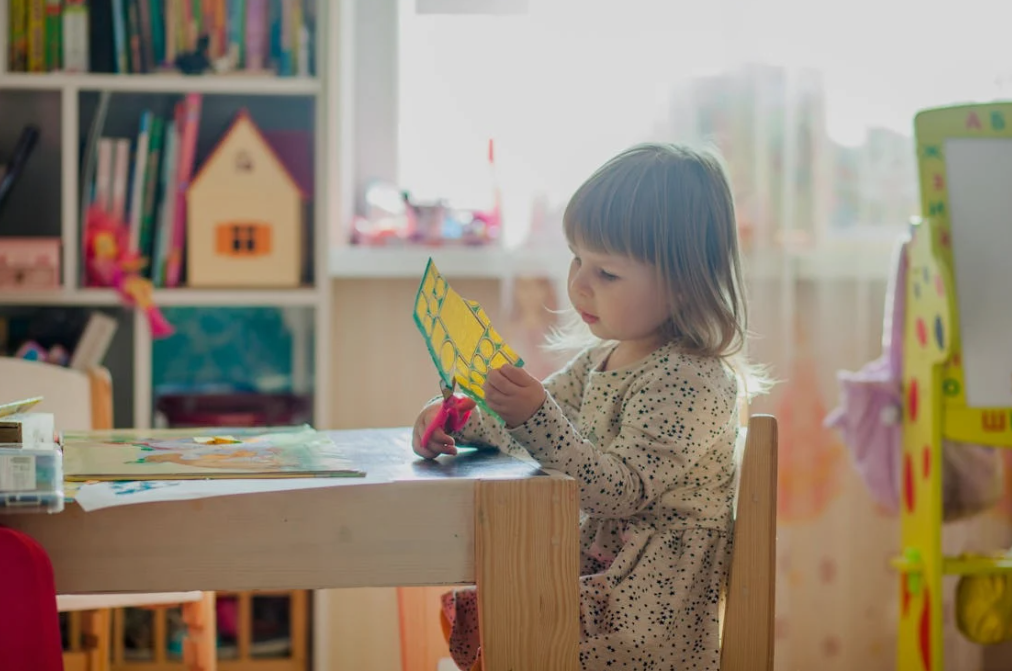As parents, one of the primary goals we have for our children is to ensure they grow up with strong social skills. These skills are essential not only for developing friendships but also for navigating the world around them, whether at school, in the community, or later in life. Social competence is one of the most critical aspects of a child’s development, and it often starts at an early age. Daycare programs, like the ones at Little Learners Daycare, provide an ideal setting to nurture these skills.
In this blog, we will explore how daycare programs can play a significant role in building social skills in young children and how parents can maximize the benefits of these early experiences.
- Peer Interaction is Key to Social Development
One of the most valuable aspects of daycare is that it provides young children with regular opportunities to interact with peers. From the moment your child enters daycare, they are surrounded by other children their age, giving them ample chances to practice essential social skills like sharing, taking turns, and communicating effectively.
At Little Learners Daycare, we create environments that encourage children to engage in cooperative play and group activities. Whether it’s sharing toys, working together to build a block tower, or simply playing a game, these interactions are crucial for learning how to communicate, resolve conflicts, and express emotions appropriately.
Peer interactions also expose children to diverse perspectives and social situations, teaching them to adapt to different personalities and environments. These experiences help children become more socially adaptable, building confidence in their ability to navigate various social settings.
- Learning Conflict Resolution
Conflict is an inevitable part of life, especially in a setting where young children are learning how to navigate relationships. Daycare programs provide a safe space for children to experience and resolve conflicts in real-time. Whether it’s an issue over sharing a toy or a disagreement during group play, children at daycare are given the chance to learn how to manage disputes in a healthy, productive way.
Educators at Little Learners Daycare act as mediators, guiding children through the process of conflict resolution. They encourage children to express their feelings, listen to one another, and work together to find a solution. Over time, children learn that conflicts can be resolved through communication and compromise, rather than through aggression or frustration. These skills help children develop emotional intelligence, a critical component of healthy relationships.
- The Role of Educators in Fostering Social Skills
In addition to peer interactions, educators at daycare centers play an integral role in building social skills in children. At Little Learners Daycare, our trained educators create structured learning activities that promote teamwork, communication, and collaboration. They model appropriate social behavior, like using polite language, waiting for a turn, and expressing emotions in a positive way.
Teachers are also instrumental in guiding children through social interactions. If a child struggles to share or participate in a group activity, educators gently encourage and provide support. They help children understand the importance of empathy and kindness, teaching them to consider others’ feelings and needs.
Educators can also foster social skills through positive reinforcement. When a child demonstrates good social behavior, such as helping a peer or using polite language, teachers offer praise and encouragement. This positive reinforcement motivates children to continue practicing these behaviors, reinforcing good social habits.
- Building Confidence in Social Situations
Children who are confident in their social skills are more likely to engage with others and form meaningful relationships. Daycare programs help children build confidence by giving them opportunities to practice social interactions in a safe, structured environment. As children grow more comfortable interacting with peers, they begin to gain a sense of independence and self-assurance.
At Little Learners Daycare, we emphasize the importance of encouraging children to express themselves and take initiative in social situations. Through play and guided activities, children develop the confidence to approach others, ask questions, and offer help when needed. As they experience success in these social interactions, their confidence grows, making them more likely to form positive relationships both inside and outside of daycare.
- Exposure to Diverse Social Settings
Another key benefit of daycare programs is the exposure to a variety of social settings. Unlike playdates that may be limited to interactions with a few children, daycare provides a dynamic, diverse environment. Children interact with peers from different backgrounds, learning to respect and appreciate diversity in both personality and culture.
In daycare, children encounter various group sizes, settings, and types of play. They participate in circle time, group activities, and even collaborative problem-solving. These diverse experiences help children develop flexibility and adaptability in social situations. They learn to work with different types of people and adjust to various social dynamics, building important skills that will benefit them throughout their lives.
Building social skills in young children is a key part of their overall development, and daycare programs provide a rich environment for fostering these skills. From peer interactions and conflict resolution to the guidance of dedicated educators, daycare programs play an essential role in preparing children for future social interactions. At Little Learners Daycare, we are committed to providing a nurturing environment where your child can grow socially, emotionally, and academically. Through play-based learning, positive reinforcement, and collaborative efforts between parents and teachers, we ensure that children develop the social skills they need to thrive in the world around them.
If you’re interested in seeing how our daycare program can benefit your child’s social development, schedule a tour today!




